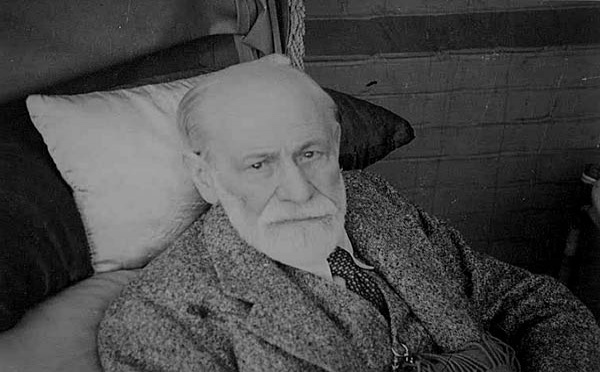EFPA is the leading Federation of National Psychology Associations. It provides a forum for European cooperation in a wide range of fields of academic training, psychology practice and research. There are 32 member associations of EFPA representing about 180,000 psychologists. The member organizations of EFPA are concerned with promoting and improving psychology as a profession and as a discipline, particularly, though not exclusively, in applied settings and with emphasis on the training and research associated with such practice. The psychologists in the member associations include practitioners as well as academic and research psychologists. The Federation has as one of its goals the integration of practice with research and the promotion of an integrated discipline of psychology.
History
The European Federation of Professional Psychologists Associations (EFPA) was founded in Germany in 1981, when representatives of 12 national psychology associations signed the Statutes. The first General Assembly (G.A.) was held in Heidelberg in 1981. Since that time General Assemblies have been held every two years: 1982 Edinburgh, 1984 Vienna, 1986 Lausanne, 1988 Rome, 1990 Luxembourg, 1991 (Extraordinary G.A.) Budapest, 1992 Brussels, 1993 Tampere, 1995 Athens, 1997 Dublin, 1999 Rome, 2001 in London, 2003 in Vienna, 2005 in Granada. The EFPA General Assembly is now held in conjunction with the biennial European Congress of Psychology and will be held in Prague in 2007.
Aims
To promote psychology as a science and profession and to further the active exchange between them.
To promote the development of psychology in research, applications and practice and to further adequate dissemination of psychological knowledge.
To promote communication and co-operation between Member Associations in Europe, and to contribute to their development.
To further the establishment of ethical codes for psychologists, and to promote the application of psychology as a means of improving the well-being of those to whom psychologists offer services.
To further the development of psychology as a science and as a profession with particular reference to training, qualification and status.
To support the interests of psychology and its application in relation to any European or international organisations concerned with defining research or professional politics significant for psychology.
To support Member Associations in promoting the interests of psychology within their own countries.
To facilitate contacts with international bodies of psychology and related disciplines and to be an important source of advice to European institutions, government departments and to political, social and consumer organisations.
To promote the reputation of psychology and psychologists as well as the protection of their interests.
To promote for the benefit of the general public, improvements in quality of life and well-being by promoting inclusion in society and the prevention of mental illness and disorder.
To disseminate psychological knowledge and professional skills in the interest of the citizens of Europe, provide documentation and make available information and expertise of scientific and professional psychology to the public.
Membership
Membership is open to the national psychology association of all European countries but there may be only one member association per country. In countries where there is more than one national psychology association, the Federation should endeavour to identify the most representative organization and, if appropriate, encourage the development of a national federation in order to promote co-operation among psychological associations. Membership is determined by the General Assembly upon presentation of the applicant association's articles, statutes, and code of ethics plus details of the membership (see EFPA Statutes Article 5).
As a European federation representing the interests of psychologists in Europe, EFPA is committed to making contact with member associations of psychologists from European countries, which are not yet members of EFPA. This is particularly the case in relation to psychologists' associations from countries in the east of Europe, with whom EFPA is concerned to make contacts, to share information and to promote collaboration. A member of the EFPA Executive Council has responsibility for developing these links and contacts, and the EC will attempt to help to support initiatives.
Activities
Collection and exchange of information
EFPA has a unique potential for collecting and disseminating information on a wide range of areas in Europe such as ethical codes, education and training, professional practices, regulations and legislation. This is achieved both through the work of Task Forces, through the work of the General Secretaries of the member associations and the EFPA Secretariat and through features in the News from EFPA published in the journal "European Psychologist".
EFPA has a responsibility to its member associations to monitor developments and lobby on behalf of members, both in relation to developing European Community legislation and in respect of broader relations across Europe.
Development of common standards of training and common practices
An objective of EFPA is to develop a more common framework for minimal standards of training and professional practice of psychologists in Europe. The 'Optimal standards for training' was agreed by member associations in 1990. The EC Directive 89/48/EEC requires member countries to develop procedures for recognizing the equivalence of qualifications and for facilitating movement between member states. EFPA aims to share information amongst member associations concerning education and training routes, curricula and standards and to examine the regulations for professional practice existing in its member associations.
Expert advice
EFPA provides a means for ensuring that expert advice is available both to individual national bodies and to relevant inter-governmental and non-governmental bodies on matters relating to psychology.
Links with other bodies
EFPA has links with a number of relevant international bodies including: the American Psychological Association (APA), the American Register of Health Service Providers in Psychology, the American State and Provincial Psychology Boards (ASPPB), the Canadian Psychological Association (CPA), the Organization of Psychologists in Quebec (CPQ), the Canadian Register of Health Service Providers in Psychology, Council of Europe, European Union (EU), the International Association for Applied Psychology (IAAP), the International School Psychology Association (ISPA), the International Union for Psychological Science (IUPsyS), the European Organization for Liberal Professions (CEPLIS), United Nations Education of Scientific and Cultural Organization (UNESCO), World Health Organization (WHO). EFPA aims to establish other links as appropriate to further the development of psychology and psychologists in Europe.
EFPA collaborates with IAAP and IUPsyS in co-ordinating the Forum of European Psychological Associations, which offers the opportunity for information exchange, communication and the development of joint policies and action in matters of common concern to European topical psychological associations. The forum meets at the occasion of international congresses of psychology taking place in Europe and provides a European network for communication and collaboration of these associations (details available from EFPA secretariat).
Conferences and meetings
The biennial European Congress of Psychology is organized under the auspices of EFPA. The First European Congress was held in Amsterdam in 1989, the Second in Budapest in 1991, the Third in Tampere in 1993, the Fourth in Athens in 1995, the Fifth in Dublin in 1997, the Sixth in Rome in 1999, the Seventh in London in 2001, the Eighth in Vienna in 2003, the Ninth in Granada in 2005, and the Tenth is due to be held in Prague in 2007. (www.ecp2007.com)
The Federation holds its General Assembly in conjunction with these meetings. EFPA is also involved in other meetings and small conferences where this is possible, appropriate and practicable.
Groups
Standing Committees
EFPA has established five Standing Committees which support the work of the Executive Council and the General Assembly by monitoring developments on the European legislative level in general and in the fields of psychotherapy and tests and testing in particular. A Standing Committee on Ethics helps to support the development of ethical standards and the implementation of a meta code on ethics.
Period 2005-2007 :
Standing Committee on Ethics
Standing Committee on Disaster, Crisis and Trauma Psychology
Standing Committee on Test and Testing
Standing Committee on Psychotherapy
Standing Committee on Scientific Affairs
Standing Committees are appointed for a four-year period and may be renewed following review.
Task Forces
Much of the development work of EFPA is carried out by Task Forces which are appointed at a General Assembly usually for a two year period and to carry out a certain task. They consist of representatives from member associations. Each Task Force has a convenor and a small number of members with interest and /or expertise in the area of activity.
During 2005-2007, EFPA has Task Forces in the following areas:
Geropsychology : 2003-2005 and 2005-2007
Traffic Psychology 1999 - 2003 and 2005-2007
Task Forces usually work for a two-year period and present a report to the General Assembly. They provide a valuable means of collecting information on a particular area from member associations and the reports are a useful resource both for members and others.
Communications
One of EFPA's most important tasks is communication. The Federation has several means of communication:
the EFPA website
regular circulars mailed to Member Associations from the Secretary General
each Executive Council member has liaison responsibility for a number of member countries
face-to-face communication with member associations wherever this is possible, e.g. meetings of the Presidents´Council or when meetings or conferences are held in that country.
Finances
Member associations pay an annual subscription to EFPA, according to the size of their membership. The financial resources of EFPA are used to fund a small Secretariat and administration of EFPA, Task Force activities, meetings of the Executive Council, the Presidents' Council, the General Assembly and the production of EFPA publications.
Operation of EFPA
EFPA has an Executive Council consisting of an Executive Board of three members and four other members. The Executive Board consists of the President, the Secretary General and the Treasurer. Members of the Executive Council serve a term of four years and are eligible for re-election for one further term. Each Member Association may have only one member on the Executive Council. Between meetings of the General Assembly (every two years) the Executive Council is responsible for the management of EFPA and for the observance of the Statutes and Regulations.
Executive Council
Tuomo Tikkanen (Finland)
President
--------------------------------------------------------------------------------
Tuomo Tikkanen (Finland) – President
Committees: TF Crisis and Disaster, WG European Regulations
Countries: Finland, Portugal
Organizations: EFPSA, IAAP, IUPSyS, APA, EAWOP
Congresses: IXth European Congress on Psychology in Granada (Spain) 2005 shared with Katharina Althaus
Other tasks: Leonardo Project on European Diploma in Psychology EDP, Forum of European Psychology organizations, Political and other representation
--------------------------------------------------------------------------------
Richard Freeman
(United Kingdom)
Secretary General
Vice President
--------------------------------------------------------------------------------
Richard Freeman (United Kingdom) - Secretary General/Vice President
Committees: Network of Secretary Generals
Countries: Belgium, Netherlands, Luxembourg, Ireland, United Kingdom
Other tasks: Brussels Head Office, contacts with potential members, EFPA website
--------------------------------------------------------------------------------
An-Magritt Aanonsen
(Norway)
Treasurer
Vice President
--------------------------------------------------------------------------------
An-Magritt Aanonsen (Norway) – Treasurer/Vice President
Countries: Iceland, Norway, Sweden
Committees: SC Ethics, WG as a Non-Governmental Organisation (NGO)
--------------------------------------------------------------------------------
Katharina Althaus (Switzerland)
Council Member
--------------------------------------------------------------------------------
Katharina Althaus (Switzerland) - EC Member
Committees: SC Psychotherapy
Countries: Croatia, Czech Republic, Estonia, Hungary, Latvia, Liechtenstein, Lithuania, Slovakia, Spain
Congresses: IXth European Congress on Psychology in Granada (Spain) 2005 shared with Tuomo Tikkanen & XIth European Congress on Psychology in Prague (Czech Republic) 2009
Other tasks: EFPA Window
--------------------------------------------------------------------------------
Johanne Bratbo (Denmark)
Council Member
--------------------------------------------------------------------------------
Johanne Bratbo (Denmark) – EC Member
Countries: Denmark
Committees: SC on Tests and Testing, TF Psychologists in the Educational System, TF Early Learning
Organizations: ISPA, EUROCADRES
--------------------------------------------------------------------------------
Pierangelo Sardi
(Italy)
Council Member
--------------------------------------------------------------------------------
Pierangelo Sardi (Italy) – EC Member
Task Forces: TF on Traffic Psychology, WG as a Non-Governmental Organisation (NGO)
Countries: Cyprus, Italy, France, Greece, Malta, Slovenia
Organizations: CEPLIS, EESC
--------------------------------------------------------------------------------
Rainer Silbereisen (Germany)
Council Member
--------------------------------------------------------------------------------
Rainer Silbereisen (Germany) – EC Member
Countries: Austria, Germany, Poland, Switzerland, Turkey
Congresses: Xth European Congress on Psychology in Prague 2007
Committees: SC on Scientific Affairs, TF Psychology on Ageing
Organizations: IUPSyS
Other tasks: European Psychologist Journal, Aristotle Prize Committee and Wilhelm Wundt-William James Award Committee.
--------------------------------------------------------------------------------
SOURCE : Site EFPA
History
The European Federation of Professional Psychologists Associations (EFPA) was founded in Germany in 1981, when representatives of 12 national psychology associations signed the Statutes. The first General Assembly (G.A.) was held in Heidelberg in 1981. Since that time General Assemblies have been held every two years: 1982 Edinburgh, 1984 Vienna, 1986 Lausanne, 1988 Rome, 1990 Luxembourg, 1991 (Extraordinary G.A.) Budapest, 1992 Brussels, 1993 Tampere, 1995 Athens, 1997 Dublin, 1999 Rome, 2001 in London, 2003 in Vienna, 2005 in Granada. The EFPA General Assembly is now held in conjunction with the biennial European Congress of Psychology and will be held in Prague in 2007.
Aims
To promote psychology as a science and profession and to further the active exchange between them.
To promote the development of psychology in research, applications and practice and to further adequate dissemination of psychological knowledge.
To promote communication and co-operation between Member Associations in Europe, and to contribute to their development.
To further the establishment of ethical codes for psychologists, and to promote the application of psychology as a means of improving the well-being of those to whom psychologists offer services.
To further the development of psychology as a science and as a profession with particular reference to training, qualification and status.
To support the interests of psychology and its application in relation to any European or international organisations concerned with defining research or professional politics significant for psychology.
To support Member Associations in promoting the interests of psychology within their own countries.
To facilitate contacts with international bodies of psychology and related disciplines and to be an important source of advice to European institutions, government departments and to political, social and consumer organisations.
To promote the reputation of psychology and psychologists as well as the protection of their interests.
To promote for the benefit of the general public, improvements in quality of life and well-being by promoting inclusion in society and the prevention of mental illness and disorder.
To disseminate psychological knowledge and professional skills in the interest of the citizens of Europe, provide documentation and make available information and expertise of scientific and professional psychology to the public.
Membership
Membership is open to the national psychology association of all European countries but there may be only one member association per country. In countries where there is more than one national psychology association, the Federation should endeavour to identify the most representative organization and, if appropriate, encourage the development of a national federation in order to promote co-operation among psychological associations. Membership is determined by the General Assembly upon presentation of the applicant association's articles, statutes, and code of ethics plus details of the membership (see EFPA Statutes Article 5).
As a European federation representing the interests of psychologists in Europe, EFPA is committed to making contact with member associations of psychologists from European countries, which are not yet members of EFPA. This is particularly the case in relation to psychologists' associations from countries in the east of Europe, with whom EFPA is concerned to make contacts, to share information and to promote collaboration. A member of the EFPA Executive Council has responsibility for developing these links and contacts, and the EC will attempt to help to support initiatives.
Activities
Collection and exchange of information
EFPA has a unique potential for collecting and disseminating information on a wide range of areas in Europe such as ethical codes, education and training, professional practices, regulations and legislation. This is achieved both through the work of Task Forces, through the work of the General Secretaries of the member associations and the EFPA Secretariat and through features in the News from EFPA published in the journal "European Psychologist".
EFPA has a responsibility to its member associations to monitor developments and lobby on behalf of members, both in relation to developing European Community legislation and in respect of broader relations across Europe.
Development of common standards of training and common practices
An objective of EFPA is to develop a more common framework for minimal standards of training and professional practice of psychologists in Europe. The 'Optimal standards for training' was agreed by member associations in 1990. The EC Directive 89/48/EEC requires member countries to develop procedures for recognizing the equivalence of qualifications and for facilitating movement between member states. EFPA aims to share information amongst member associations concerning education and training routes, curricula and standards and to examine the regulations for professional practice existing in its member associations.
Expert advice
EFPA provides a means for ensuring that expert advice is available both to individual national bodies and to relevant inter-governmental and non-governmental bodies on matters relating to psychology.
Links with other bodies
EFPA has links with a number of relevant international bodies including: the American Psychological Association (APA), the American Register of Health Service Providers in Psychology, the American State and Provincial Psychology Boards (ASPPB), the Canadian Psychological Association (CPA), the Organization of Psychologists in Quebec (CPQ), the Canadian Register of Health Service Providers in Psychology, Council of Europe, European Union (EU), the International Association for Applied Psychology (IAAP), the International School Psychology Association (ISPA), the International Union for Psychological Science (IUPsyS), the European Organization for Liberal Professions (CEPLIS), United Nations Education of Scientific and Cultural Organization (UNESCO), World Health Organization (WHO). EFPA aims to establish other links as appropriate to further the development of psychology and psychologists in Europe.
EFPA collaborates with IAAP and IUPsyS in co-ordinating the Forum of European Psychological Associations, which offers the opportunity for information exchange, communication and the development of joint policies and action in matters of common concern to European topical psychological associations. The forum meets at the occasion of international congresses of psychology taking place in Europe and provides a European network for communication and collaboration of these associations (details available from EFPA secretariat).
Conferences and meetings
The biennial European Congress of Psychology is organized under the auspices of EFPA. The First European Congress was held in Amsterdam in 1989, the Second in Budapest in 1991, the Third in Tampere in 1993, the Fourth in Athens in 1995, the Fifth in Dublin in 1997, the Sixth in Rome in 1999, the Seventh in London in 2001, the Eighth in Vienna in 2003, the Ninth in Granada in 2005, and the Tenth is due to be held in Prague in 2007. (www.ecp2007.com)
The Federation holds its General Assembly in conjunction with these meetings. EFPA is also involved in other meetings and small conferences where this is possible, appropriate and practicable.
Groups
Standing Committees
EFPA has established five Standing Committees which support the work of the Executive Council and the General Assembly by monitoring developments on the European legislative level in general and in the fields of psychotherapy and tests and testing in particular. A Standing Committee on Ethics helps to support the development of ethical standards and the implementation of a meta code on ethics.
Period 2005-2007 :
Standing Committee on Ethics
Standing Committee on Disaster, Crisis and Trauma Psychology
Standing Committee on Test and Testing
Standing Committee on Psychotherapy
Standing Committee on Scientific Affairs
Standing Committees are appointed for a four-year period and may be renewed following review.
Task Forces
Much of the development work of EFPA is carried out by Task Forces which are appointed at a General Assembly usually for a two year period and to carry out a certain task. They consist of representatives from member associations. Each Task Force has a convenor and a small number of members with interest and /or expertise in the area of activity.
During 2005-2007, EFPA has Task Forces in the following areas:
Geropsychology : 2003-2005 and 2005-2007
Traffic Psychology 1999 - 2003 and 2005-2007
Task Forces usually work for a two-year period and present a report to the General Assembly. They provide a valuable means of collecting information on a particular area from member associations and the reports are a useful resource both for members and others.
Communications
One of EFPA's most important tasks is communication. The Federation has several means of communication:
the EFPA website
regular circulars mailed to Member Associations from the Secretary General
each Executive Council member has liaison responsibility for a number of member countries
face-to-face communication with member associations wherever this is possible, e.g. meetings of the Presidents´Council or when meetings or conferences are held in that country.
Finances
Member associations pay an annual subscription to EFPA, according to the size of their membership. The financial resources of EFPA are used to fund a small Secretariat and administration of EFPA, Task Force activities, meetings of the Executive Council, the Presidents' Council, the General Assembly and the production of EFPA publications.
Operation of EFPA
EFPA has an Executive Council consisting of an Executive Board of three members and four other members. The Executive Board consists of the President, the Secretary General and the Treasurer. Members of the Executive Council serve a term of four years and are eligible for re-election for one further term. Each Member Association may have only one member on the Executive Council. Between meetings of the General Assembly (every two years) the Executive Council is responsible for the management of EFPA and for the observance of the Statutes and Regulations.
Executive Council
Tuomo Tikkanen (Finland)
President
--------------------------------------------------------------------------------
Tuomo Tikkanen (Finland) – President
Committees: TF Crisis and Disaster, WG European Regulations
Countries: Finland, Portugal
Organizations: EFPSA, IAAP, IUPSyS, APA, EAWOP
Congresses: IXth European Congress on Psychology in Granada (Spain) 2005 shared with Katharina Althaus
Other tasks: Leonardo Project on European Diploma in Psychology EDP, Forum of European Psychology organizations, Political and other representation
--------------------------------------------------------------------------------
Richard Freeman
(United Kingdom)
Secretary General
Vice President
--------------------------------------------------------------------------------
Richard Freeman (United Kingdom) - Secretary General/Vice President
Committees: Network of Secretary Generals
Countries: Belgium, Netherlands, Luxembourg, Ireland, United Kingdom
Other tasks: Brussels Head Office, contacts with potential members, EFPA website
--------------------------------------------------------------------------------
An-Magritt Aanonsen
(Norway)
Treasurer
Vice President
--------------------------------------------------------------------------------
An-Magritt Aanonsen (Norway) – Treasurer/Vice President
Countries: Iceland, Norway, Sweden
Committees: SC Ethics, WG as a Non-Governmental Organisation (NGO)
--------------------------------------------------------------------------------
Katharina Althaus (Switzerland)
Council Member
--------------------------------------------------------------------------------
Katharina Althaus (Switzerland) - EC Member
Committees: SC Psychotherapy
Countries: Croatia, Czech Republic, Estonia, Hungary, Latvia, Liechtenstein, Lithuania, Slovakia, Spain
Congresses: IXth European Congress on Psychology in Granada (Spain) 2005 shared with Tuomo Tikkanen & XIth European Congress on Psychology in Prague (Czech Republic) 2009
Other tasks: EFPA Window
--------------------------------------------------------------------------------
Johanne Bratbo (Denmark)
Council Member
--------------------------------------------------------------------------------
Johanne Bratbo (Denmark) – EC Member
Countries: Denmark
Committees: SC on Tests and Testing, TF Psychologists in the Educational System, TF Early Learning
Organizations: ISPA, EUROCADRES
--------------------------------------------------------------------------------
Pierangelo Sardi
(Italy)
Council Member
--------------------------------------------------------------------------------
Pierangelo Sardi (Italy) – EC Member
Task Forces: TF on Traffic Psychology, WG as a Non-Governmental Organisation (NGO)
Countries: Cyprus, Italy, France, Greece, Malta, Slovenia
Organizations: CEPLIS, EESC
--------------------------------------------------------------------------------
Rainer Silbereisen (Germany)
Council Member
--------------------------------------------------------------------------------
Rainer Silbereisen (Germany) – EC Member
Countries: Austria, Germany, Poland, Switzerland, Turkey
Congresses: Xth European Congress on Psychology in Prague 2007
Committees: SC on Scientific Affairs, TF Psychology on Ageing
Organizations: IUPSyS
Other tasks: European Psychologist Journal, Aristotle Prize Committee and Wilhelm Wundt-William James Award Committee.
--------------------------------------------------------------------------------
SOURCE : Site EFPA








































